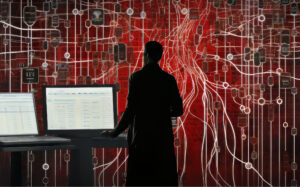Online elections? Maybe when the politicians stop making promises
Israel 2020 - Startup nation, a world leader in the cyber field that developed the Iron Dome and almost reached the moon, but still conducts elections with archaic ballots. Why is the country not moving forward to online elections?
Imagine another election day. You get up in the morning, enter the "Israel Votes" application using your smartphone or computer, identify yourself using your ID card number, receive a verification password in a text message and click on the button representing your preferred party. This way, easily and simply, you fulfill your civic duty, from wherever you are - without standing in line at the polls and without fearing the corona virus.
Online voting - many advantages, one disadvantage.
Just like in digital banking, the credit market, online shopping or the gov.il available government project that makes government offices accessible to the public via the Internet, professionally conducted online voting has many advantages. Online voting saves the economy an expensive Sabbath day, can prevent forgeries and corruption and offers the electorate an available, easy and convenient interface that may increase voting rates. In addition, online voting provides immediate results and saves paper, human resources and logistics. If so, why is such an advanced, up-to-date and friendly approach not adopted by the State of Israel and other countries in the world?
Guy Hochman, the CEO of Genie Computing Services explains: "Online voting has one huge drawback that drops the ground from under the feet of its supporters: the State of Israel, with all the good intentions, is not yet ripe for online elections and seeing, many online projects managed by the state and/or sub-providers On her behalf, they presented magnificent failures in information security."
Indeed, the country's short digital history proves this beyond any doubt: as early as 2008, a computer failure occurred in the Labor Party primaries, as a result of which the elections had to be held again, this time by manual voting. Since then we have been exposed to failures in the security of the government biometric database servers and to repeated failures in the presentation of the results of the local elections. Just recently, the country was shocked by the news of a serious security breach in the "Elector" application that exposed the voter register of the State of Israel for all to see.
The solution for securing information in elections, as of today: notes and envelopes

The weak points of the online voting systems begin with physical limitations, such as the inability to detect illegal influence and/or a physical threat on the voter sitting at home and debating which party to vote for and the lack of tools to detect identity theft, where the vote is made by a person who is not the registered voter.
It is true that these weak points can be overcome through an interim solution: voting in a digital ballot box, which incorporates personal identification of the voter by members of the polling committee. However, both online voting and voting in digital ballot boxes constitute a center of attraction for all hostile hackers inside and outside the country, who wish to influence The most dramatic damage potential of the security breaches is the possibility of a quick and immediate loss of public trust in the democratic "system" - and on this issue, there is no compromise.
Is it possible to create a hack-resistant online voting system?
Many countries in the world that have considered or experimented with national or municipal online voting, among them Estonia, Canada, Australia, France and Finland, have discovered that the method exposes them to security breaches, server failures, suspicion of the handling of voting data, and the collapse of computer systems.
According to Hochman, there is no doubt that online votes are challenging: "Every day we deal with corporate information security issues for Genie customers, and provide them with a variety of security solutions with the strictest standards, which allow them to protect their valuable corporate information from cyber threats. Even in the global business world, Credit, insurance and leading banks manage billions of digital interactions with their customers every day at the highest level of security, without customers having to go to branches to sign documents or withdraw funds. Therefore, despite all the challenges, professional planning and proper preparation can make an online voting system available to any country reliable and safe to use"
In conclusion, despite the many advantages and all the good intentions, as long as the State of Israel does not treat its information systems with the same degree of seriousness as is practiced in leading business and financial organizations, the online elections will not come to fruition and will not replace the current, cumbersome and outdated election procedure.
You may be interested in:

אירוע משפחות סוף קיץ 2025


פישינג בעסקים: איך לזהות, למנוע ולהגיב נכון


החשיבות של סריקות פגיעויות באבטחת סייבר






